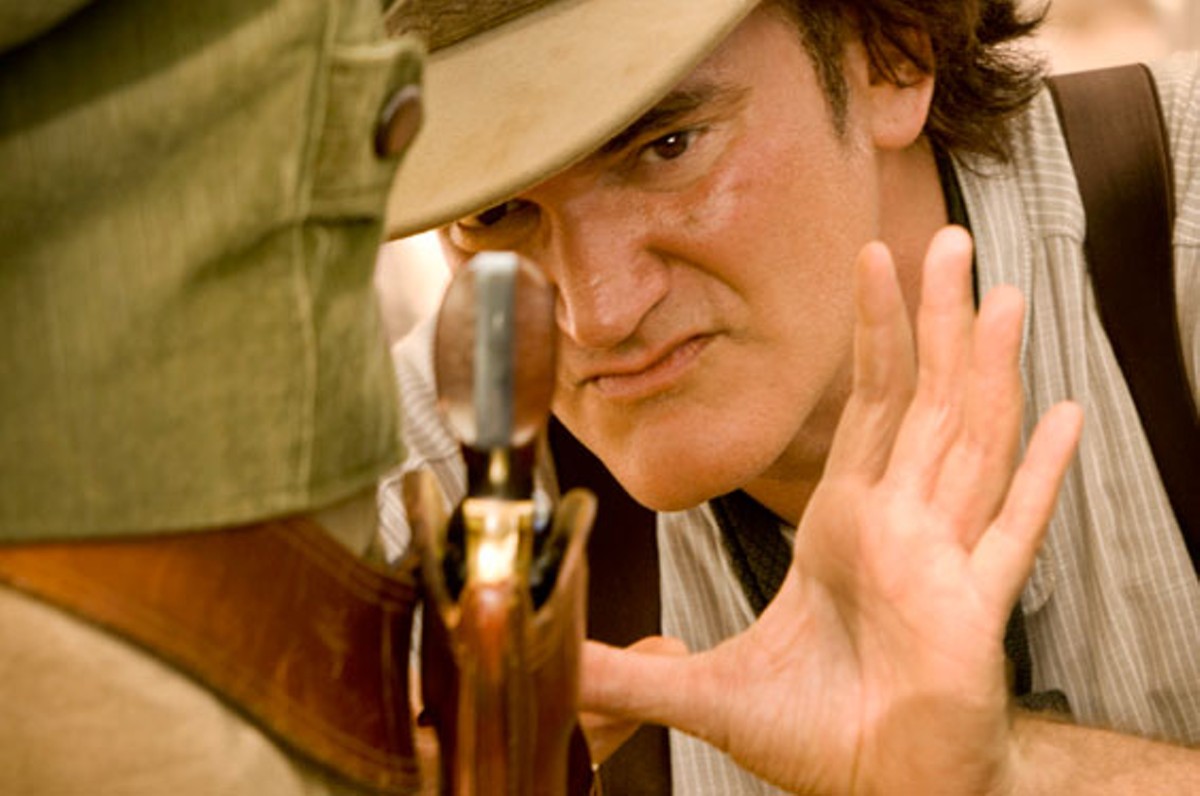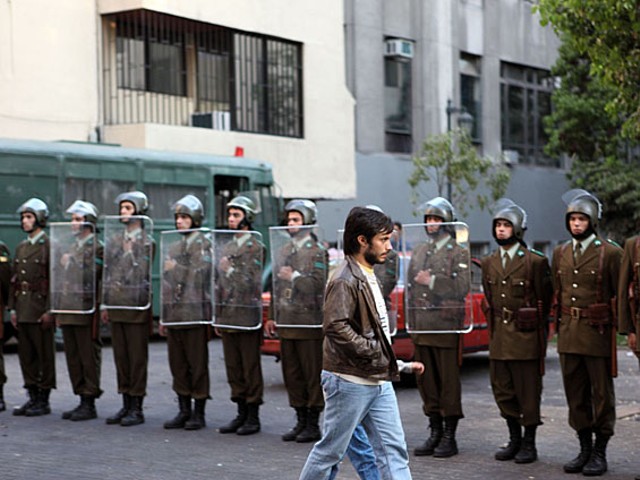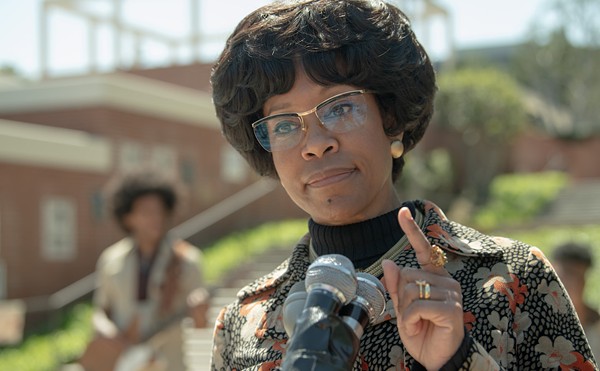Ah, here it is again: that special time we experience every two to six years when Quentin Tarantino makes a new movie, and people dig out the old "Tarantino just steals everything from such-and-such" arguments. You've heard them. Reservoir Dogs is a scene-for-scene rip-off of Ringo Lam's City on Fire, they say, or Kill Bill is nothing but lifts from old exploitation movies, or Pulp Fiction took that one part in which Uma draws a square in the air from a Porky Pig cartoon, and something's gotta be done about it. The premise is that Tarantino is at worst a plagiarist and at best an empty postmodernist: all reference, no substance.
I hate these arguments because they misunderstand what art even is, and by doing that ignore what people love — what is great — about Tarantino.
Django Unchained — the title of which, ironically, pays tribute to rip-offs of Sergio Corbucci's Django (1966) — is Tarantino's most direct homage to spaghetti westerns. But you could already see their influence as the Bride stumbled through the desert in Kill Bill Volume 2, or as the Nazis approached in the opening of Inglourious Basterds, both scenes that mimic shots from Sergio Leone's Once Upon a Time in the West. If that upsets you, think about Leone's A Fistful of Dollars. It's the one that started the genre, and surely one of the best westerns of all time, right? But Fistful, as we all know, is an uncredited remake of Akira Kurosawa's even better samurai film Yojimbo (itself sharing a story with the Dashiell Hammett novel Red Harvest or the movie version of The Glass Key). Fistful is a faithful adaptation of Yojimbo, a much closer copy than anything Tarantino has ever done. And yet we rightly honor it for its attitude, its innovations in music and camerawork, its iconic Clint Eastwood performance, its undeniable entertainment value. Hell, being a rip-off gives it some of its power. It takes a great story and puts it into a new context with a different style.
But Tarantino's movies are far from remakes. His stories and characters are uniquely his. Even the much-discussed similarities between Reservoir Dogs and Lam's 1987 Hong Kong crime drama City on Fire come down to a few scenes at the end of two totally different stories. A better comparison for Tarantino's approach might be the sample-based masterpieces of golden-age hip-hop.
When trumpet player Darryl "Hassan" Jamison wailed away on the 1970 J.B.'s instrumental "The Grunt," he might have known the song was derivative of "Keep on Doin'" by the Isley Brothers. He could not have known that 18 years later one of his feverish squawks would be lifted out of context and made to sound like a menacing air raid siren in Public Enemy's "Rebel Without a Pause." Collaged with pieces of two other James Brown songs, one by the Soul Children, and Terminator X's scratch of Chubb Rock's "Rock 'n' Roll Dude," it forms a new work distinct from its individual parts. No other group can be mistaken for Public Enemy, even though they built their futuristic sound from pieces of the past. It's the context and the combination that makes it a unique work of art.
If Tarantino is a DJ, he's got a hell of a record collection. Kill Bill alone mixes its spaghetti western style with training sequences from Chinese kung fu films, showdowns from Japanese samurai and gang movies, imagery and sounds from European horror, and a backstory told in the form of anime. David Carradine carries his flute from Circle of Iron, Uma Thurman wears a jumpsuit like the one in Game of Death, Daryl Hannah whistles a song from Twisted Nerve, looking kinda like the female avenger from Thriller: A Cruel Picture. It's an epic kung-fu-samurai-yakuza-spaghetti-western-revenge love story. I'm a fan of these genres, but most of the "real" ones don't move me like Kill Bill does when Beatrix at last says good-bye to Bill, or when, reunited with her daughter, she falls on the bathroom floor and cries tears of joy. Like the Public Enemy song, this patchwork doesn't play as name-that-tune, but as something new and different.
If all Tarantino is doing is copying, then why did all the Pulp Fiction knockoffs of the '90s indie boom fail so miserably at re-creating his voice? And how could we even tell they were aping him unless there's something recognizably his to mimic?
Fixating on homages or "lifts" completely ignores what makes Tarantino Tarantino. When Pulp Fiction won the Oscar for best original screenplay, I bet it wasn't because there was a glowing briefcase like in Kiss Me Deadly. It was because voters loved the dialogue, that it was a movie about talking, that it was about the parts of the characters' lives that you usually skip. They liked the then-quite-novel nonlinear structure. They thought it was clever and original in the way it was put together, and they were right.
When Inglourious Basterds was nominated for the same award, was it because of homages to The Dirty Dozen and characters talking about G.W. Pabst, or was it — again — the language, or the screenplay's crazy insistence on fucking with history, its ways of wrenching suspense from long conversations, its indelible characters, such as the murderous Nazi who thinks he's Sherlock Holmes solving a case?
And let's not ignore Tarantino's many talents that constitute actual directing. I love his always-confident, never intrusive camerawork; his pacing, which allows scenes time to breathe without losing momentum; his uncanny ear for music. In recent years, he has revealed an aptitude for expertly staged and choreographed action sequences. And did you ever notice the 20-year trail of great performances he has coaxed from undervalued or forgotten actors? Career bests for everybody from John Travolta to Pam Grier to Chris Tucker. He turned character actors like Steve Buscemi and Samuel L. Jackson into household names. He made icons out of an Austrian actor previously unknown in the U.S., and even the dad from Free Willy. He knows how to pick those guys and how to bring out the best in them.
Where'd he get all that from? City on Fire?






